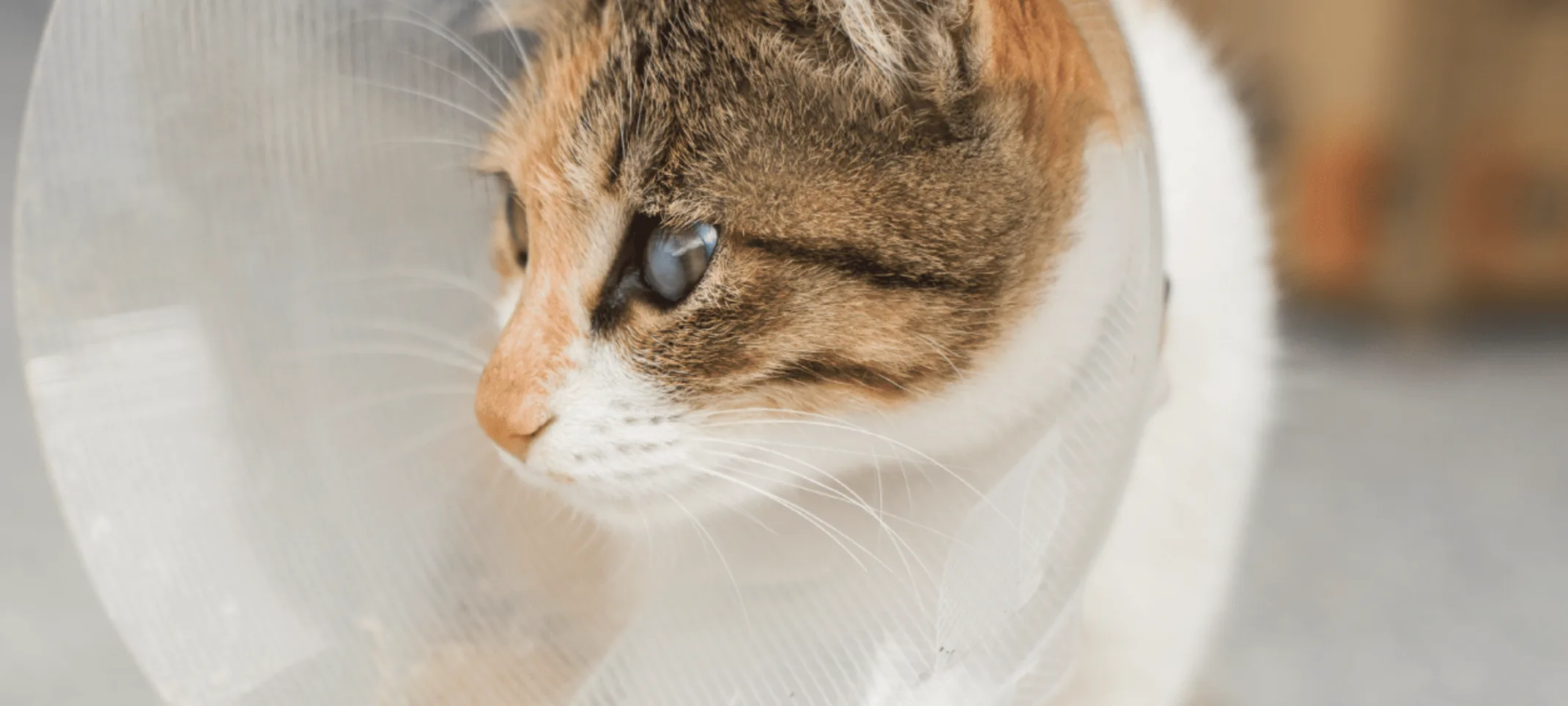Animal Hospital at Vista Lakes
Spay and Neuter
Spaying or neutering your pet can help them live a longer, healthier life, minimize behavior problems, and help control the the population of unwanted dogs and cats.

Overview
According to the American Veterinary Medical Association, nearly 12,500 puppies are born in the United States each hour. Spaying females or castrating males eliminates unwanted litters, which contribute to thousands of euthanasia procedures and millions of stray animals. Additionally, these procedures can minimize behavior problems and help your pet live a longer, healthier life by reducing the likelihood of certain cancers and tumors.
When should I have my pet spayed or neutered?
In general, we recommend spaying or castrating small dogs and cats between 4-6 months of age, unless otherwise recommended by the veterinarian.
Why should I have my pet spayed or neutered?
There are many benefits that come with spaying your female companion animal. They include helping to control the stray dog and cat population, eliminating the sometimes 'messy' heat cycles that attract male dogs, and preventing diseases in your pet such as pyometra (infection in the uterus) and mammary cancer. Additionally, research has shown that spayed pets live longer than pets that have not been spayed.
There are also many benefits that come with castrating your male companion animal. These benefits include helping to control the stray dog and cat population, eliminating undesirable and embarrassing behavior, and preventing diseases in your pet such as prostate disease and testicular cancer.
How is a spay or neutering surgery performed?
Spaying, also called an "ovariohysterectomy", is a surgical procedure in which both ovaries and uterus are completely removed from your female pet while they are under general anesthesia. Castrating refers to the surgical procedure in which both testicles are removed while your male pet is under general anesthesia.
Your pet’s safety and comfort are our primary concerns when performing a spay or castration. We routinely use an IV catheter and fluids on canine spays and castrations, as well as feline spays. This is important for maintaining blood pressure and perfusion to the kidneys and other organs as well as allowing immediate IV access in the event of an emergency. We use advanced pain management techniques in conjunction with anesthesia to make sure your pet is as comfortable as possible during the procedure and after they are discharged. Our spay and castration patients receive 2 or 3 different injectable pain medications during the procedure and usually go home with oral pain medication. We also perform local anesthetic blocks at the surgical site. Proper pain management makes the procedure as comfortable as possible and allows for faster recovery.
Animal Hospital at Vista Lakes Appointment Deposit And Cancellation Policy
To serve our patients and clients in the most efficient manner, we require a $100 deposit when scheduling a surgery appointment. This deposit will go toward the cost of the surgery. Please note that if we have not seen your pet within 3 months of scheduling the surgery, we will require a consultation prior to scheduling to ensure your pet is a candidate for surgery.
If you need to cancel or reschedule you will need to call within 48 hours of your appointment to keep your deposit on file or receive a refund. If you do not call us within 48 hours your deposit will be forfeited. If you are rescheduling, an additional $100 deposit will be required, no exceptions.
Please call (407) 380-3011 to schedule, cancel, or reschedule your pet’s surgery. If you are unable to reach us, please email or text us and we will reach out to you as soon as possible.
